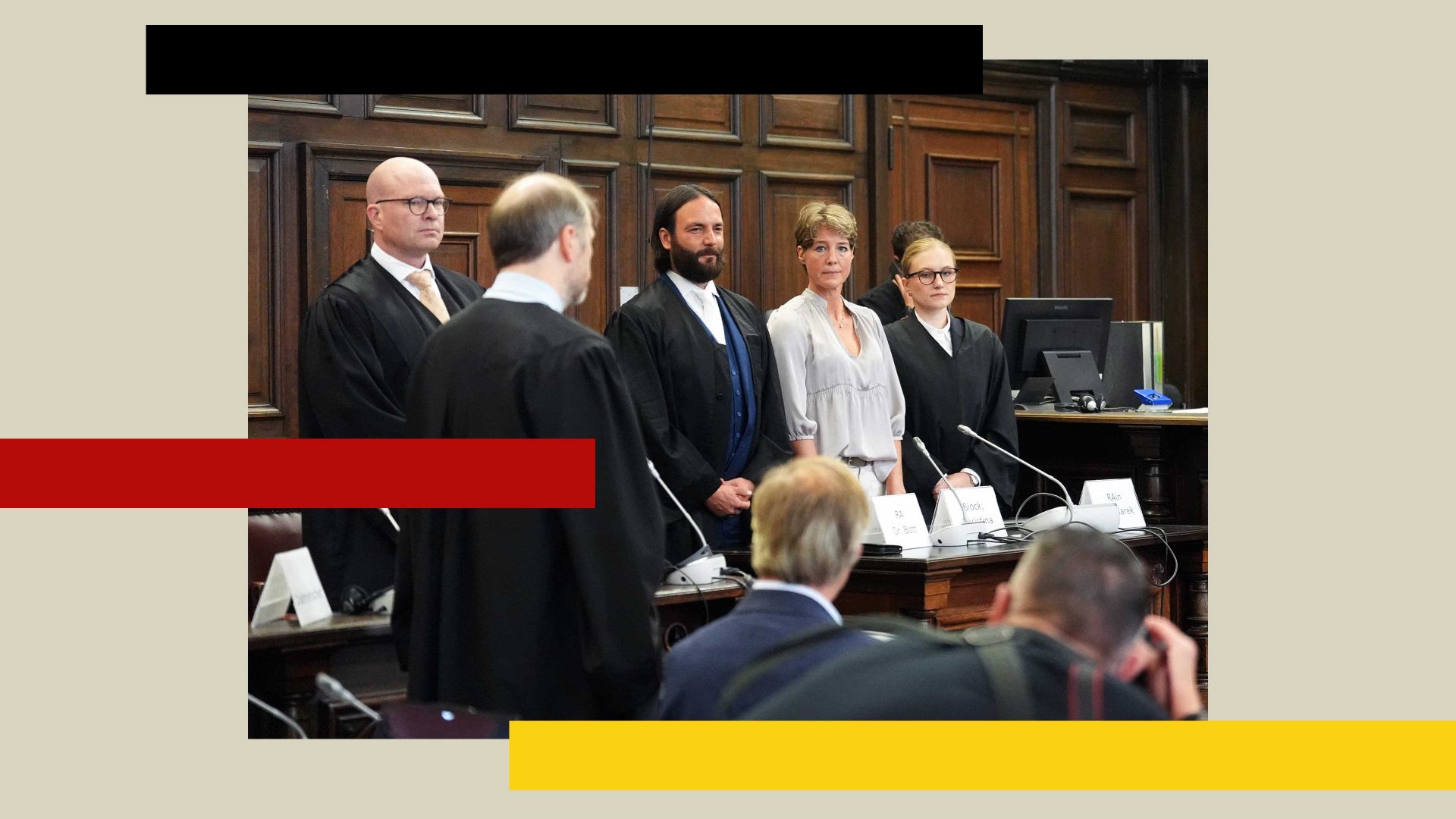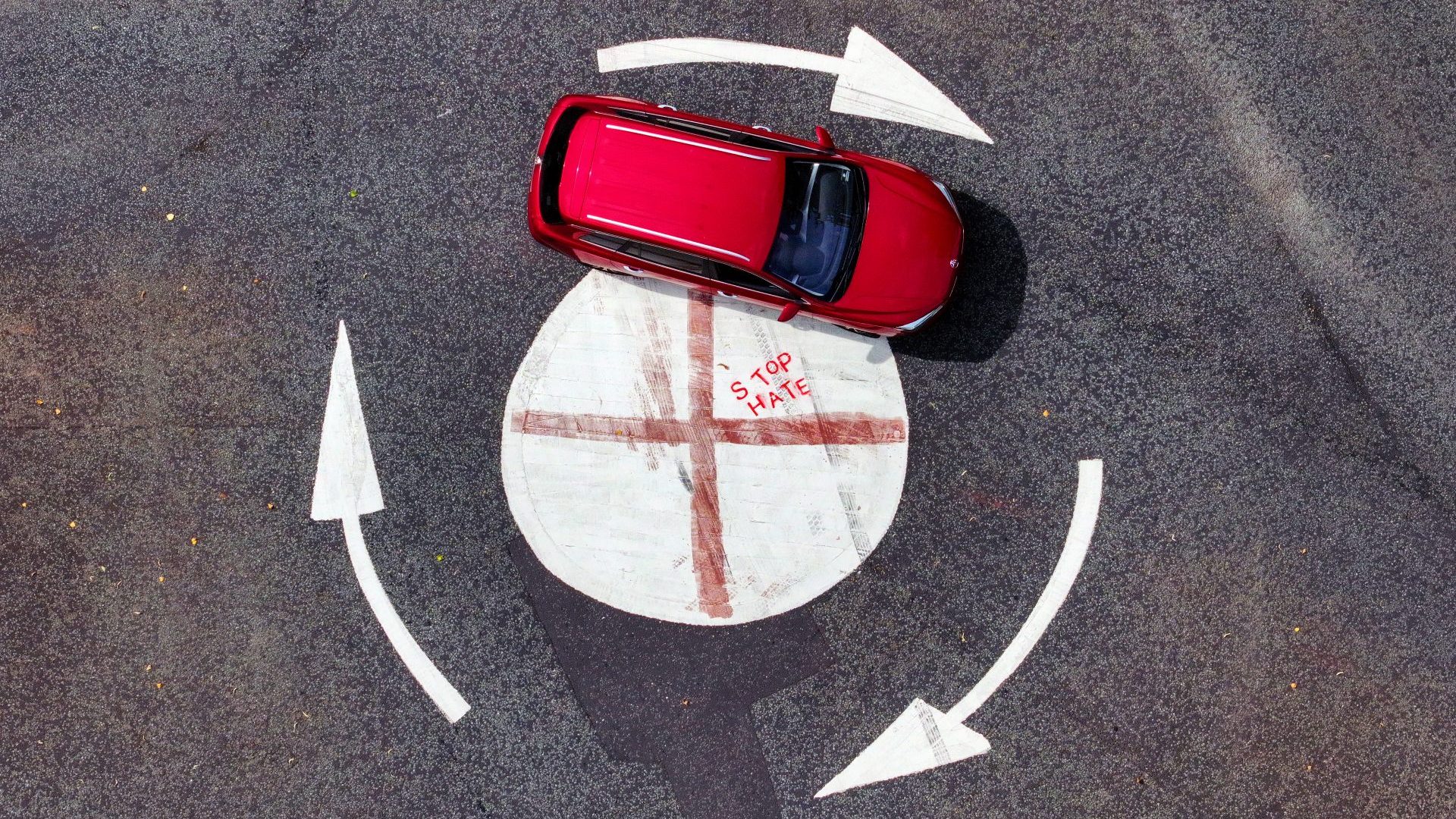This summer, Germany is transfixed by a legal thriller – not on Prime or HBO, but unfolding live in a high-security Hamburg courtroom usually reserved for terrorism cases.
In the dock is Christina Block, heiress to the Block House chain of steakhouses, a family-friendly fixture in almost every German town.
But the drama surrounding her is anything but family-friendly.
The 52-year-old stands accused of commissioning an Israeli security firm to kidnap her two youngest children – Theo and Klara, then aged 10 and 13 – from their father. The charges are: aggravated child abduction, grievous bodily harm, and unlawful detention. She denies them all. If convicted, she faces up to 10 years in prison.
Adding to the spectacle: Block’s partner, former TV football pundit Gerhard Delling, is on trial alongside her for aiding and abetting. And as if the cast list weren’t colourful enough, even August Hanning, the former head of Germany’s foreign intelligence service BND, is under investigation for possible ties to the security company.
The undisputed facts are shocking. On New Year’s Eve 2023, six masked people stormed the rural Danish home of Block’s ex-husband, Stephan Hensel. They overpowered him, dragged the two children – the boy’s mouth taped shut, his sister’s hands bound – through a forest and a lot of mud, bundled them into a camper van and drove them across the border to a farm near Karlsruhe, in the south of Germany. Both feared for their lives.
Christina Block picked them up on January 2 and took them to Hamburg, where she lives with the 16-year-old daughter (while the oldest son, now an adult, had chosen to stay with his father). She insists she only travelled south after being told: “come quickly, it’s about your children”.
Soon after, the German courts ordered her to release the children back to Denmark. She complied.
One of the kidnappers, 36-year-old Israeli Tal S, is the only member of the commando team in custody. In court last week he admitted his role, saying he believed he was helping “a mother in despair”, persuaded by a friend that the children’s father was “evil” and brainwashing them. Only after months behind bars did he realise he’d been misled. He apologised in court – an apology Hensel accepted.
Suggested Reading


Sven Liebich, Germany’s trans neo-Nazi
What sounds like a wealthy mum gone rogue in a bitter custody battle could well be that – but there’s more to the tabloid-ready tale. If you dig deeper, it exposes a clash of cross-border jurisdiction and a mother’s collapse of trust in a system that is supposed to protect children and parents alike.
The prequel begins in 2021. After a holiday in Denmark, Hensel refused to return the children to their mother in Hamburg, where they had always lived. German courts ruled his actions illegal, ordered their return and gave Block the “Aufenthaltsbestimmungsrecht” – sole authority to decide where the children lived.
In most of the EU that would have settled it. European law would have required local courts to immediately respect the German ruling, as custody decisions in one EU country are automatically accepted in another.
Denmark, however, opted out of that framework – as did the UK after Brexit – relying instead on the 1996 Hague Convention and the 1980 Hague Convention on child abduction. In practice, this nearly always means long, grinding court proceedings.
In the Block case, Hensel could simply ignore the German court order. So he did. The Danish authorities backed him.
After nearly two years of stalemate, German courts declared themselves no longer competent as the children were now “settled” with the father. Full jurisdiction passed to Denmark.
By then, Block says, she felt powerless.
Her lawyers argue that since she held legal custody, she could hardly “kidnap” her children, and says she was just talking to the security firm regarding an assignment for a family-owned hotel.
And when confronted with her iPhone diary – where she jotted down Mission Impossible-like ideas involving a makeup artist, a double for Hensel’s new girlfriend or a teacher to help bring the children to her – she claimed this was just blue-sky thinking keeping her sane.
The trial will run until 2026, but whatever her involvement, it is obvious Block feared losing her children for ever. This, ironically, is what may now happen, because the abduction has left the family even more broken.




